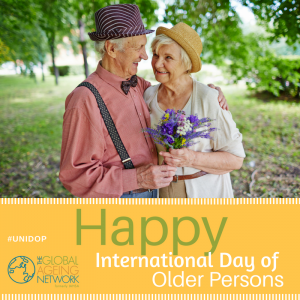By Jo Boylan, Ngaire Hobbins and Tim Henwood (Guest Post)
As the population ages, the percentage of older adults diagnosed as pre-frail or frail will continue to increase. For the individual, a diagnosis of frailty indicates a significant physical burden and reduced quality of life, in addition to an increased risk of falls, institutionalization and death. For a government that is responsible for providing aged care support for the frail population, the financial implications are significant. In Australia, the provision of such support is projected to increase from ~$115 billion currently to ~$246 billion in the coming two decades (Goss 2008, Projects of Australian health expenditure). Although research suggests that there are a number of cost-effective, evidence-based, life enhancing strategies available to reduce frailty, they remain underutilized or are poorly translated into practice.
Targeted nutrition and exercise based interventions is a proven effective and low-cost method of reducing frailty among older adults. Low protein diets cause losses in lean muscle mass and also blunt the body’s ability to rebuild muscle mass. For those with complex aged care needs, the prevalence of muscle loss and frailty are further exacerbated by physical inactivity, where negative muscle remodeling occurs according to its contractile requirement. There is strong evidence supporting the introduction of protein supplements into the diets of older adults, including research into the amount, quality and timing of delivery. Aged care providers who consciously promote protein uptake consistent with current evidence report improved physical well-being among clients. In addition, progressive resistance and weight bearing exercises can be used to combat sedentary behavior and have gained attention as powerful tools in the battle against disability. Research shows that delivery of moderate-to-high intensity, machine-based progressive resistance training within community and residential aged care settings produces undeniable positive benefits, which are further enhanced with the inclusion of balance exercises. Although this modality of exercise remains an underutilized care model, aged care providers who have embraced it have reported significant client benefit, including improved mobility, muscle strength and physical performance, as well as relief from chronic disease symptoms and medication needs.
This presentation will demonstrate the value of embracing current evidence for clients and organizations, and will showcased translational programs that have been rewarded with national awards and practice recognition. Delegates will learn how a large Australian aged care provider has embedded healthy ageing as its model of care. This model is guided by the World Health Organisation Five Standards for Health Promotion and is underpinned by the healthy settings approach. The methodology is systematic, interdisciplinary and integrated. It is supported by policies, procedures, systems and processes including an established early intervention program to address decline and reverse frailty, evidence based measures, access to gyms and support from exercise professionals. Additional enablers include health promoting opportunities for social connections, ongoing learning and health literacy, exercise classes, resistance training, and good nutrition. These enablers promote active and healthy ageing and compress the stage of decline and disability, even for frail older people. So far, this strategy has shown a 54% reduction in fractures over the last two years across 16 residential homes.
Special Note: This presentation has already taken place at the 2017 Global Ageing Conference in Montreux, Switzerland. If you would like to learn more about this presentation or would like to contact the presenters, contact us.
About the Authors
 Josephine Boylan, Director of Operations, Southern Cross Care, Parkside, South Australia, Australia
Josephine Boylan, Director of Operations, Southern Cross Care, Parkside, South Australia, Australia
Josephine Boylan is the Director Operations Southern Cross Care. Over the past 7 years Jo has been leading organisational reorientations toward healthy ageing approaches across residential, community and retirement living communities. Her health ageing achievements include development and implementation of a healthy ageing model, presentations at international scientific conferences, appointment to national and state aged care advisory roles, adjunct teaching positions with SA Universities, participation in expert panel with Alexandre Kalache and winning 10 national better practice awards for the delivery of healthy ageing in residential aged care. Jo provides leadership, theoretical knowledge, research transfer into practice and drives cultural change to enable implementation of healthy ageing services.

Nagaire Hobbins, Specialist Dietitian in Ageing, Aged Care Consultant, Ngaire Hobbins Dietetics, Hobart, Tasmania, Australia
Nagaire Hobbins is an Accredited Practising Dietitian with a widely varied career, specialising in gerontology, aged care, brain health and dementia in the past two decades. Her passion lies in helping all older people enjoy independent, productive and fulfilling lives in their later years, whether they live in their own homes or in assisted care. Primarily a clinician, she especially relishes opportunities to translate complex science into language and sensible, practical advice for everyday people. Her two successful books: Eat To Cheat Ageing and Eat To Cheat Dementia, alert older people to their unique nutrition needs and how they combine with activity to avoid malnutrition-related physical and mental decline. Ngaire is an engaging, informative speaker to professional and non-professional audiences, an outspoken advocate for age-friendly communities and active ageing strategies.

Dr. Tim Henwood, PhD, Principal, AgeFit Solutions, Brisbane, Queensland, Australia
Dr. Tim Henwood is an aged care consultant and special population exercise physiologist with a specific interest in older adults with complex healthcare needs accessing age care services. He has extensive experience in the assessment of muscle physiology and functional capacity, and the design and delivery of programmes to improve physical wellbeing and reduce disability. Dr. Henwood is the lead academic on an Australian Government Department of Health supported investigation of the impact of progressive resistance plus balance training on health service utilisation and an alternative model of care among community-dwelling adults with government supported aged care packages.
You need to login in order to like this post: click here



 Josephine Boylan, Director of Operations, Southern Cross Care, Parkside, South Australia, Australia
Josephine Boylan, Director of Operations, Southern Cross Care, Parkside, South Australia, Australia
